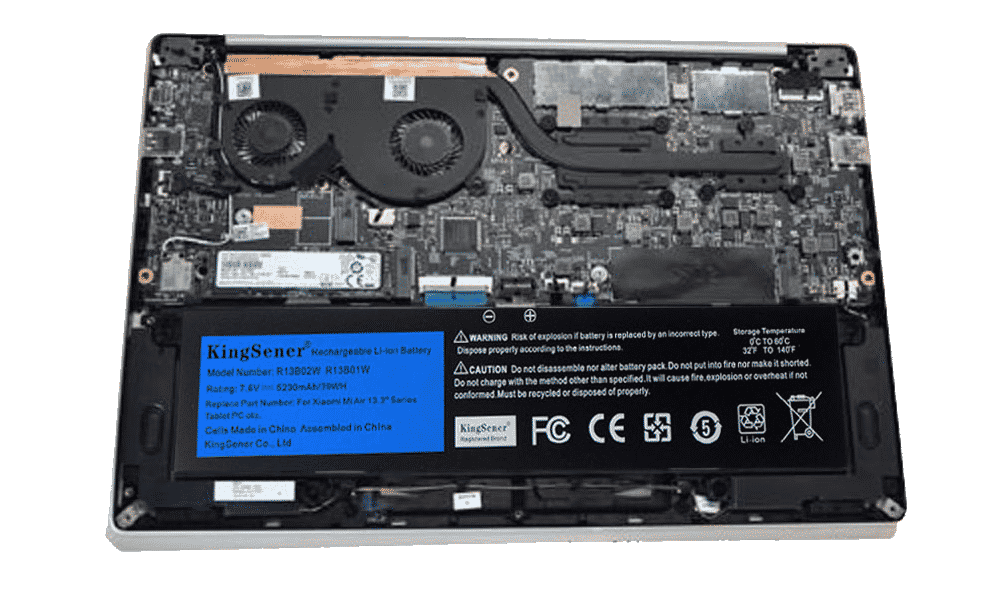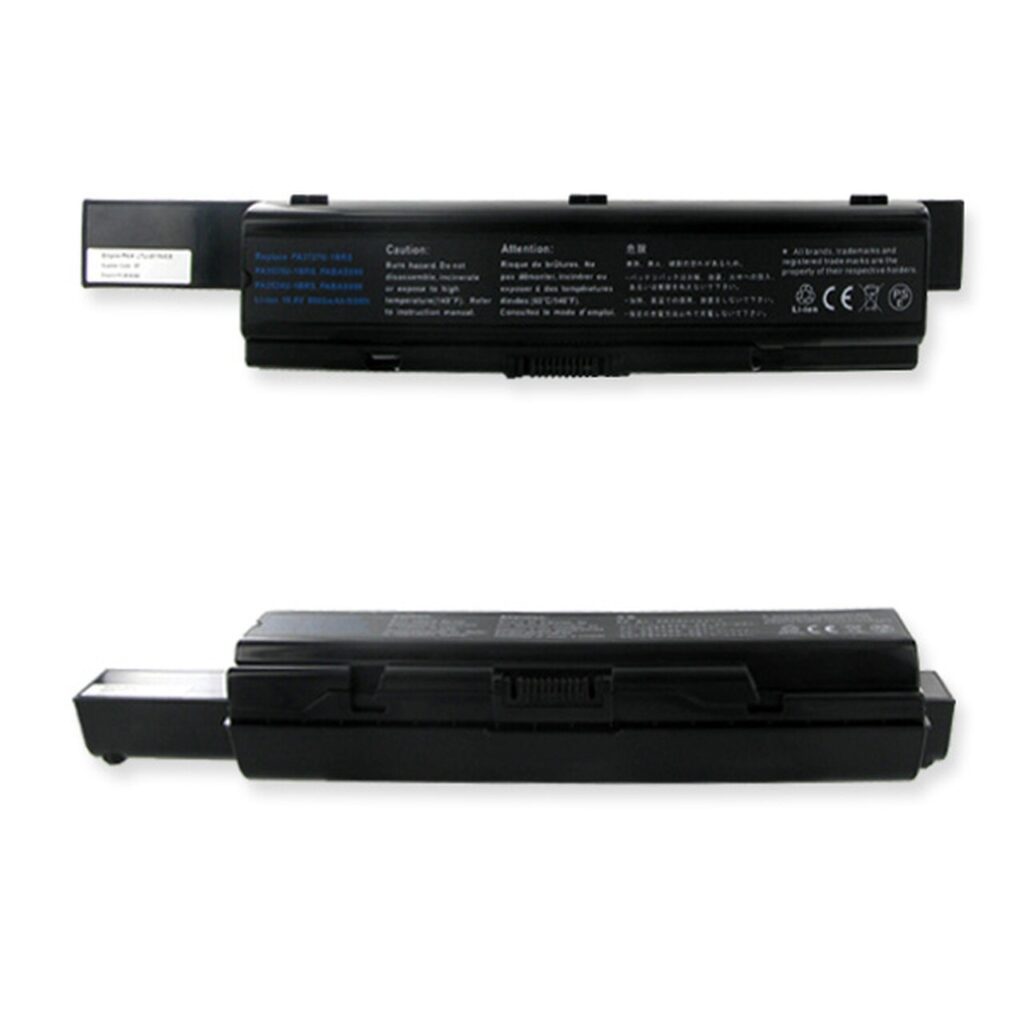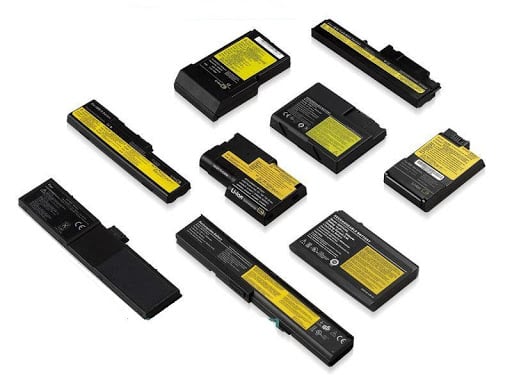The Top 10 Best Laptop Batteries
“We’ve compared the best Laptop batteries available at the most competitive prices.”

Best Laptop Battery Reviews
If you think about it, the best car batteries are lithium-ion, lead-acid and nickel-metal hydride. These seem to be the most common types of battery used in cars. There is a lot more out there, but this gives me a good foundation for my response. Lithium-ion batteries are commonly used in electric vehicles. A good example is the Chevrolet Volt and the Tesla Model S.
Lithium-ion batteries have a lot of advantages over their competitors, such as nickel-metal hydride and lead-acid. First, they can store much more energy per unit mass than other types of car batteries. Second, lithium-ion batteries are much lighter than different types of car batteries. In the case of the electric Chevy Volt, for instance, its 660-pound battery pack is about a third of the weight of an internal combustion engine.
Third, lithium-ion batteries are much safer than other types of car batteries. They can withstand more abuse before catching fire or exploding. This is because they use very different chemistry for storing and releasing energy than lead-acid and nickel-metal hydride. Fourth, lithium-ion batteries are more durable than other types of car batteries. They can withstand many more charge and discharge cycles than lead-acid or nickel-metal hydride. Fifth, lithium-ion batteries are much more potent than other types of car batteries. They can store and deliver a lot more energy per unit volume. This allows electric cars to have high-performance engines.
- Rechargeable: Yes
- Voltage: 11.1V
- Cell Count: 6
- Max Capacity: 6600 Mah
- Rechargeable: Yes
- Voltage: 10.8V
- Cell Count: 6
- Max Capacity: 6600 Mah
- Rechargeable: Yes
- Voltage: 11.1V
- Cell Count: 6
- Max Capacity: 5000 Mah
- Rechargeable: Yes
- Voltage: 10.8V
- Cell Count: 6
- Max Capacity: 6600 Mah
- Rechargeable: Yes
- Voltage: 10.95V
- Cell Count: 6
- Max Capacity: 5800 Mah

How Do The Best Laptop Batteries Work?
Laptop batteries are small rectangular objects that people often carry in bags. There are many different types of laptop batteries. Still, they all have the same general appearance: a black box with rounded edges and four corner protrusions for attaching it to various devices. Most laptop batteries consist of a rechargeable lithium-ion battery that can be charged using an AC adapter or connected to a USB port on another device. The charging process for laptop batteries is similar to other kinds of batteries. By charging a laptop battery, the energy is converted from an unusable form (electrical) and placed into a usable state (chemical).In other words, the battery stores energy in the form of chemical potential energy. The chemical reactions involved are very complex and contain a great deal of entropy.
Laptop Batteries Designed Differently.
Laptop batteries are a type of battery used to provide energy to laptop computers, smartphones, or other portable electronic devices. Its function is to supply power for the device’s use when it is not plugged into an external power source. After some time, the battery may wear out from use and can no longer hold a charge. In some cases, laptop batteries have been known to explode due to extreme heat conditions. Laptop batteries are designed to be light and easy for portable use. They generally do not last as long as traditional batteries.
Laptop batteries are made with a variety of different chemical compounds, including lithium-ion and lead-acid. The capacity of a lithium-ion battery is measured in amp-hours, and the theoretical maximum capacity for this type of battery is about 100 Wh/kg. However, the actual usable energy depends on many factors, such as technology used, operating temperature, and discharge rate.

How Long do Laptop Batteries Last?
There is a good reason why laptop batteries don’t last very long. Most people think it’s because they’re not being used often enough, but that’s not the case. It has to do with how fast laptop batteries are charged. When you plug in your laptop, it will begin to set until it reaches 100% capacity. This means that all the power is being drained from the battery at a higher than standard rate. The result is that you need to recharge them more often because they’re not holding as much of a charge.
The biggest drawback to laptops is their lack of battery life. If laptop batteries lasted longer, they would be a lot more useful in our daily lives, and we could get away from desktop computers or tablets that need to be charged all the time. The technology isn’t there yet to make laptop batteries last longer, but that doesn’t mean we should give up on them. There are companies out there like Apple, who are working very hard to improve the overall quality of laptops, and when they do, it will be a much better world for all of us.
Where Are Laptop Batteries Mostly Made?
The type of battery technology is essential because it determines how long a laptop’s battery will last. For example, there are lithium-ion batteries that have been used for many years on notebooks. When they were first introduced, they had capacities of only about 2 to 4 watt-hours per liter (Wh/L). But now the best ones can provide 8 to 20 Wh/L. The next type of technology is lithium polymer batteries. They are similar to the older kind, except that there’s no liquid electrolyte. Instead, a polymer serves as the electrolyte and electrodes. Still, another option is a lithium-air battery. The air electrode contains oxygen, and the lithium metal serves as the anode in this type of cell. The technology that is used to produce the electrodes also has a significant impact on how long a battery lasts. For example, there are solid oxide fuel cells and lithium silicate batteries.

How Much Do The Best and the Worst Laptop Batteries Cost?
There are two possibilities for laptop batteries, literally exploding. The first possibility is that laptop batteries emit trace amounts of oxygen when overcharged, which could ignite like how many other organic compounds react with fire.
Laptop batteries don’t randomly explode. Batteries are devices that store current and release it later when needed. This is an experimental design feature of all battery-powered objects. It’s a safety measure to prevent fires and explosions. So how do batteries explode? They don’t unless there’s a problem with the circuitry that powers them. This is why you never see an exploding battery. If, for example, the circuitry gets wet and shorts out, current flows through it. This would cause a fire or an explosion. Another way a battery can explode is if it’s damaged in any way. Batteries are very fragile, and over time they break down. They have to be handled carefully. A third way a battery can explode is if the user mistreats it. If, for example, you try to charge it with an incompatible circuit. The key to preventing battery explosions is user education. Someone who understands the dangers of batteries can avoid them by using caution and care.
- Rechargeable: Yes
- Voltage: 11.1V
- Cell Count: 6
- Max Capacity: 6600 Mah
- Rechargeable: Yes
- Voltage: 10.8V
- Cell Count: 6
- Max Capacity: 6600 Mah
- Rechargeable: Yes
- Voltage: 11.1V
- Cell Count: 6
- Max Capacity: 5000 Mah
- Rechargeable: Yes
- Voltage: 10.8V
- Cell Count: 6
- Max Capacity: 6600 Mah
- Rechargeable: Yes
- Voltage: 10.95V
- Cell Count: 6
- Max Capacity: 5800 Mah
Read Laptop Battery Reviews Before You Buy Them(to Avoid Problems!)
First, it is essential to remember the origins of laptop batteries. Initially, they were developed by a German scientist named Georg Ohm around 1835. He was attempting to explain how electricity and magnetism were related in the human mind as an attempt to clarify the nature of his scientific work. This set off a chain reaction that led him to a deeper consideration of other fundamental concepts such as energy and time. Later, in 1859-60, another German scientist named Wilhelm Eduard Weber and a Danish scientist called Hans Christian Oersted performed experiments with electricity flowing through wires that led them to discover something interesting: the relationship between the flow of an electric current through a wire and its magnetic field. This led to what is known today as Ohm’s Law. Ohm’s Law is the result of human imagination and logic. It describes how voltage, current, and resistance are related in an electric circuit. The Law has been generalized to apply in other situations where the quantities have different units, but it still retains its original meaning. Ohm’s Law can be used in many cases and phenomena in human society. For example, we can use Ohm’s Law to human society. In social science, it is commonly known that humans are complex creatures and thus difficult to study. This means that many phenomena in human society have not yet been explained or understood by humans. For example, there is a high degree of resistance in human civilization against the acceptance of new ideas. This makes it challenging to have a rational discussion about controversial topics such as immigration and climate change.
Battery Culture
Laptop batteries are the result of a long-standing technological culture that values convenience over sustainable energy use. The goal is to be able to run your laptop for as long as possible, preferably without having to plug it in at any point in time. However, this has created an incredibly large amount of waste and pollution because we have been conditioned to be lazy and wasteful with our resources. We have been taught to believe that the only value of something is its immediate convenience. The battery-operated culture started with a few items, like radios and flashlights. Because these are batteries, they can be run without having to plug into anything else. The fact that we can run things without having to plug them into anything else is part of what has created the problem. Because batteries allow us to operate independently, many people believe that they are independent. We have been conditioned to live this way. The battery-operated culture has also had a significant impact on our free time. We are no longer as adventurous or creative because we have been conditioned to think that the only way to be successful is by having the newest and best things.